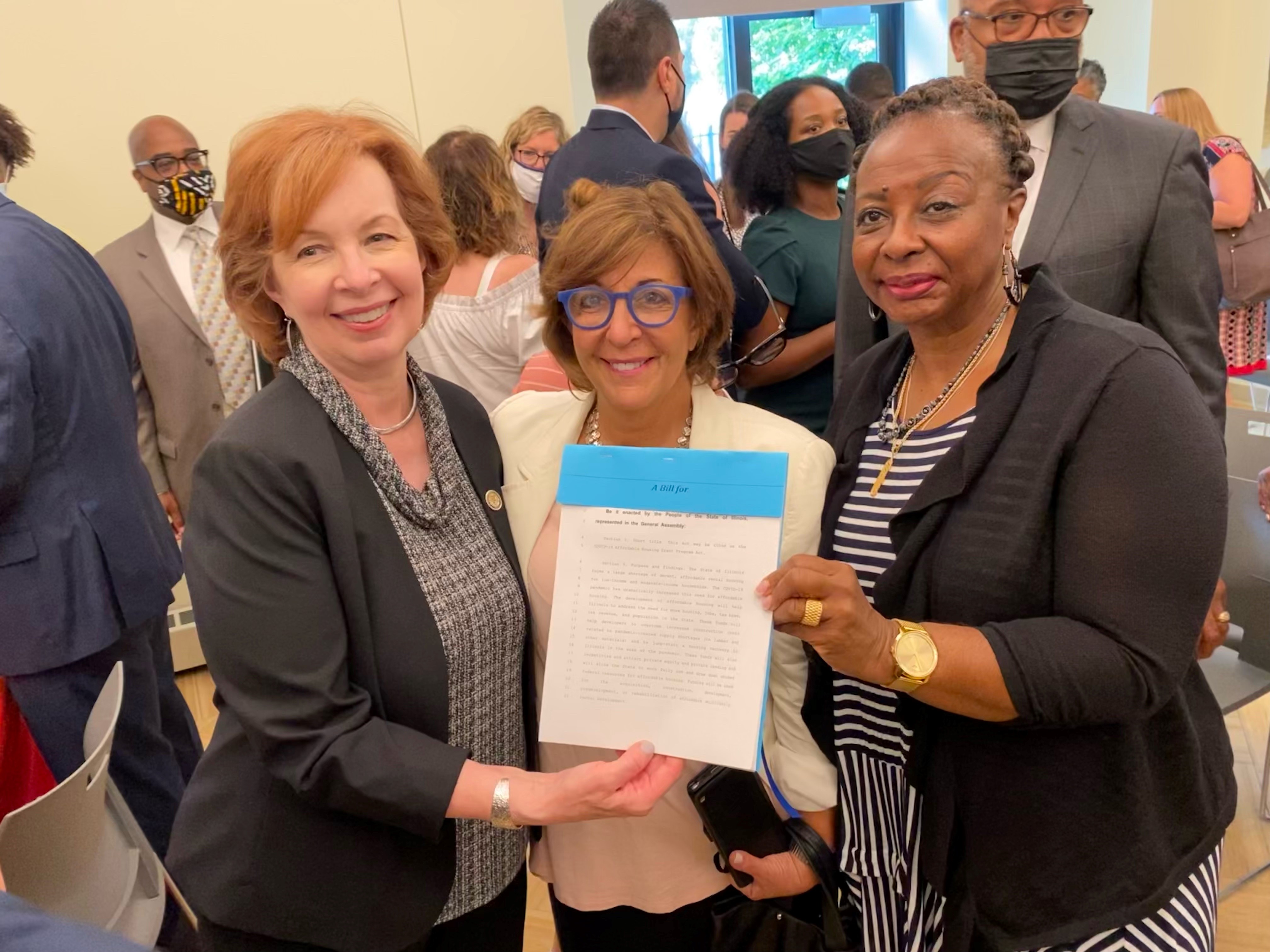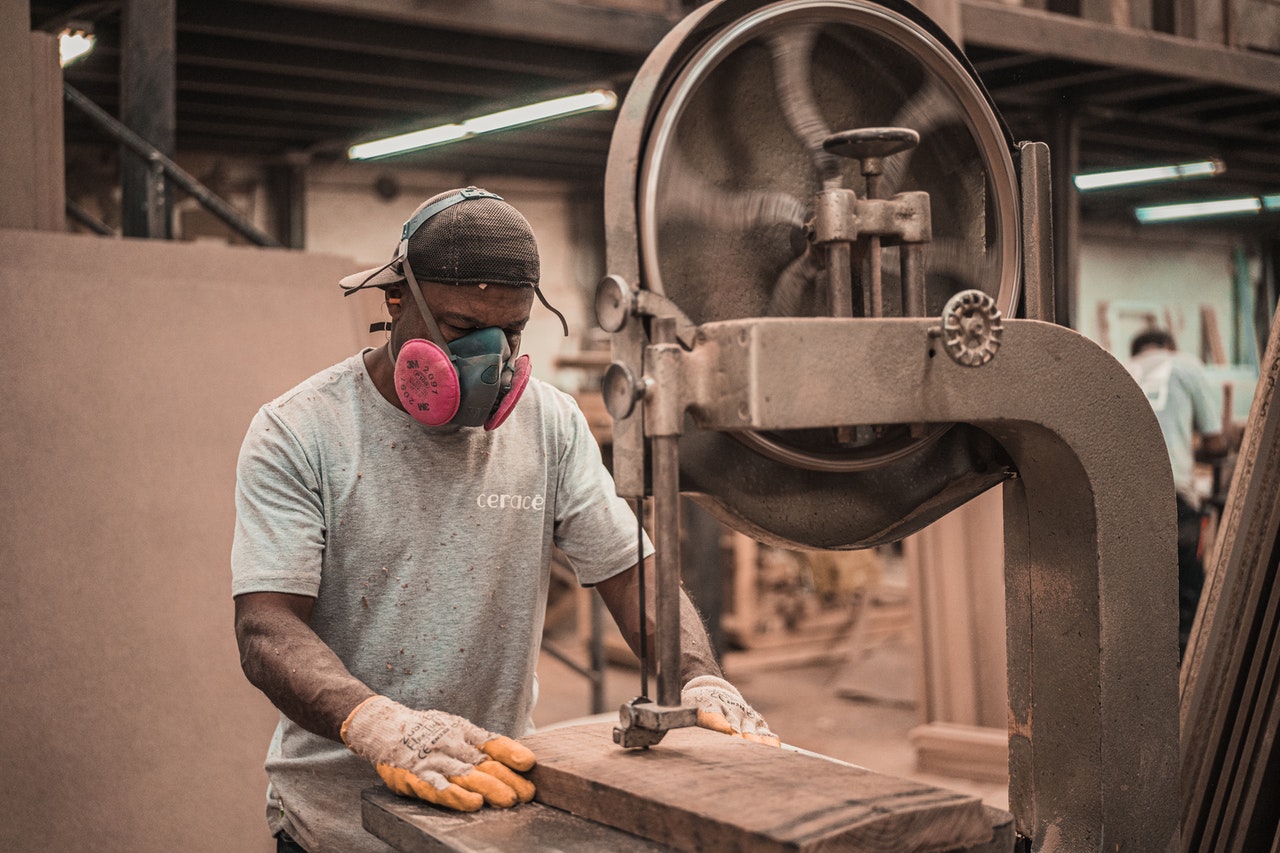- Details
- Category: Social Equality
 CHICAGO – An effort to create more affordable housing for Illinois residents led by State Senators Mattie Hunter, Ann Gillespie and Sara Feigenholtz was signed into law by Governor JB Pritzker Thursday.
CHICAGO – An effort to create more affordable housing for Illinois residents led by State Senators Mattie Hunter, Ann Gillespie and Sara Feigenholtz was signed into law by Governor JB Pritzker Thursday.
“I’ve advocated for equitable housing for a long time, and this year, affordable housing is more necessary than ever before,” said Hunter (D-Chicago). “People are still recovering from the financial struggles brought on by the pandemic, not to mention the eviction moratorium coming to a halt. I hope that affordable and equitable options prevail long after this pandemic is gone.”
- Details
- Category: Social Equality
 SPRINGFIELD – A 2019 Dove study found that African American women face the highest instances of hair discrimination and are more likely to be sent home from the workplace because of their hair. State Senator Mattie Hunter (D-Chicago) is working to ensure this will no longer be the case in Illinois.
SPRINGFIELD – A 2019 Dove study found that African American women face the highest instances of hair discrimination and are more likely to be sent home from the workplace because of their hair. State Senator Mattie Hunter (D-Chicago) is working to ensure this will no longer be the case in Illinois.
“No one should have to miss out on a job opportunity or miss a school graduation because of the hair that grows naturally out of their head,” Hunter said. “It’s 2021. As a nation, we should be past this petty discrimination.”
- Details
- Category: Social Equality
 CHICAGO – State Senator Mattie Hunter (D-Chicago) is expressing support for Roberts Temple Church of God in Christ becoming a national historical site after U.S. Senator Tammy Duckworth (D-Illinois) introduced federal legislation this week.
CHICAGO – State Senator Mattie Hunter (D-Chicago) is expressing support for Roberts Temple Church of God in Christ becoming a national historical site after U.S. Senator Tammy Duckworth (D-Illinois) introduced federal legislation this week.
“I am pleased that Roberts Temple Church of God in Christ may become a national landmark,” Hunter said. “Churches were an integral part of the Civil Rights movement, and should be remembered as such.”
- Details
- Category: Social Equality
 CHICAGO – During Thursday’s joint Senate hearing on age, equity, workers’ rights and consumer protection, Senator Mattie Hunter (D-Chicago) advocated for increased protection among minority workers and consumers.
CHICAGO – During Thursday’s joint Senate hearing on age, equity, workers’ rights and consumer protection, Senator Mattie Hunter (D-Chicago) advocated for increased protection among minority workers and consumers.
The U.S. Department of Labor in October released a wage report for the third quarter of this year, revealing that Black workers on average earn 72% of what white men earn. Broken down by gender, Black men earn 77.5% of what white men earn, while Black women make only 68.5%. In Chicago specifically, wage gaps grew significantly over the last several decades, causing what UIC researchers call “a growing exodus” of Black Chicagoans.
More Articles …
Page 1 of 6

